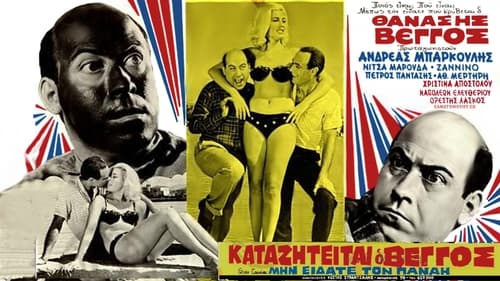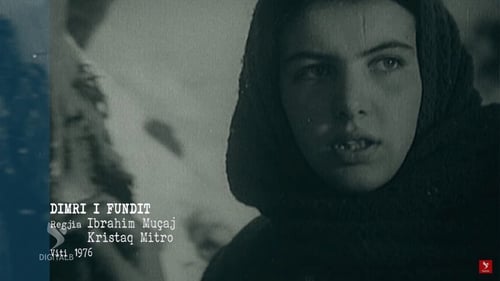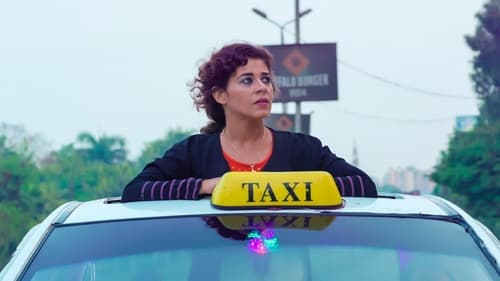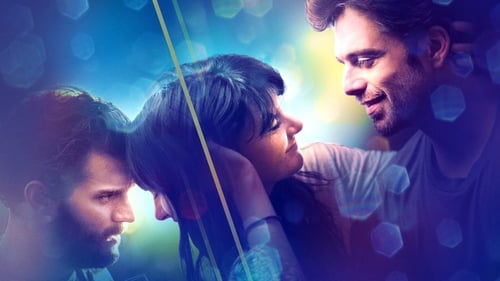Maybe Someday, Another Day, But Not Today (2022)
Man try. Woman sacrifice.
Genre : Drama
Runtime : 27M
Director : Bihar Jafarian
Synopsis
Trapped in her own marriage as housemaid, Tiara would do anything to escape her banal days.

After the rise of the Taliban in Afghanistan and the restriction of women in public life, a pre-teen girl is forced to masquerade as a boy in order to find work to support her mother and grandmother.

Marta is a young, energetic girl who wants to become a tractor driver. Her husband, Adem, initially supports her, but then she discovers his true nature.

A misogynistic old man goes to complain about "his rights" after a woman is elected as the leader of his village's cooperative.

World War II. Albania is under the Nazi occupation. The Germans capture two young girls and torture them to learn more about the communist movement.

An old man refuses to undergo an operation in the hospital because he does not trust the abilities of the female surgeon.

Erotic tangles forced Fani and Panai to leave from Athens to Chalkida, there they await new adventures with women, which will result in marriage, but Panai will escape the wedding night.

Germans come amid snow and winter. In the village only people remained are women, that fight until wounded partisans, sheltered in the village, will retreat deeper and snow will cover their tracks. Face to face with the Germans and their control of the village, women, led by mother Shano and mother Mara, depart to make a pile of wood, but actually bring bread and food to the partisans.

When a day in the life of a beleaguered Egyptian filmmaker goes sideways, he witnesses anew issues like class and gender relations.

A story of survival about a woman's first night in a Soviet prison camp. After committing a crime to protect her son, Anastasia is sentenced to 12 years in a Soviet prison camp. Her arrival upsets the balance between the inmates. In a night of backstabbing and shifting alliances, she must find a way to escape and discover the hidden truth of her survival.

Hëna, who works in a construction site, falls in love with another worker, Agim.

The Woven Path: Perempuan Tana Humba is made up of two short movies that highlight the role of women in Sumba culture. The first part of the documentary, The Woven Path, is a 10-minute movie featuring picturesque footage and images that serve as a backdrop to two poems centering on the theme of mothers. The 30-minute Perempuan Tana Humba is a much more straightforward documentary, focusing more on Sumba culture and women in three short chapters: “Marapu”, “Belis” and “Perkawinan”.

An artist dumps her longtime boyfriend, but her attempt to take a break from dating ends when she quickly finds herself in two passionate romances.

Single mother Anna and her four children live in the front-line war zone of Donbas, Ukraine. While the outside world is made up of bombings and chaos, the family is managing to keep their home a safe haven, full of life and full of light. Every member of the family has a passion for cinema, motivating them to shoot a film inspired by their own life during a time of war. The creative process raises the question of what kind of power the magical world of cinema could have during times of disaster. How to picture war through fiction? For Anna and the children, transforming trauma into a work of art is the ultimate way to stay human.

This animated short challenges enduring myths, spawned by fairy tales and romances, about women in medieval society. It explores the differences and similarities between that distant period and our own, and shows what medieval women’s lives were really like.

A woman blessed with magical powers by the gods and living in a place where you are forbidden to use them, teams up with a princess to summon the gods and bring down the oppressive regime.

The vegetables come from the garden behind the house, the fish comes out of a can, and money for bread is earned at the factory. It’s because of this money that they came here. Women from Turkey stand side-by-side with women form Mecklenburg at the conveyor belt of a fish-processing factory in Lübeck. Their hands are stained brown, the pungent smell of fish clings to them, and their arms and backs ache. If these jobs were done by men, machines would have been invented long ago to replace them. But female labour is cheap and the women do not complain. They have learned to work – and therein lies the source of their pride. (Source: https://www.artechock.de/film/text/filminfo/g/ge/gefubr.htm)

This early public information film puts out an appeal for more women to take up munitions work - showing training centres, opportunities for work in the aircraft industry as well as the tempting prospect of a fun social life. (source: British Film Institute)

'The Pass' is a compelling series of autobiographical vignettes incorporating songs and stories penned and performed by Denise Marsa. Marsa lays her soul bare as she weaves us through her struggles and accomplishments in the music industry. She has the courage to be authentically raw and vulnerable as she delves deep into introspection. Her sense of humor keeps her from falling into pathos, even when tackling difficult subjects such as sexuality and sexual harassment. What emerges is an entertaining portrait of a strong, talented, complex & inspiring woman. “The Pass” is a must-see tale about perseverance and the human spirit in a mesmerizing tour de force.

Alma W. Thomas lived a life of firsts: the first Fine Arts graduate of Howard University (1924), the first Black woman to mount a retrospective at the Whitney Museum of American Art (1972), and the first Black woman to have her paintings exhibited in the White House (2009). Yet she did not receive national attention until she was 80.

Ana had the perfect husband, the perfect children, and the perfect friend, but she wanted to turn her life around and turned everything upside down.

























